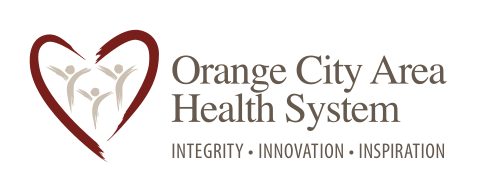-by Kim Goslinga, ARNP, Behavioral Health Clinic
May is “Mental Health Awareness Month” and “Better Sleep Month”, both of which are important to our overall health and well-being. Mental health and sleep are closely interconnected and considered bi-directional. This means that poor mental health can cause sleep problems, and sleep problems can cause mental illness. Many mental health conditions have symptoms that make falling and staying asleep difficult. In turn, lack of quality sleep fuels the vicious cycle of worsening mental health → insomnia → worsening mental health → insomnia → worsening mental health….
Research has shown that people with poor quality sleep are up to 10 times more likely to develop depression than those who sleep well. Additionally, we know that sleep deprivation can cause:
– Decreased stress tolerance and difficulties coping with daily challenges.
– Worse anxiety and depression symptoms.
– Problems processing emotional experiences causing emotional dysregulation, mood swings, and irritability.
– Impaired cognitive functioning resulting in difficulties with concentration, memory, problem solving, and decision making.
– Substance abuse problems as people who don’t sleep well may turn to drugs or alcohol to help cope with the effects of sleep deprivation.
– Increased risk of suicidal ideation and behavior, particularly in people already struggling with depression.
Humans have a natural 24-hour sleep-wake cycle called the “circadian rhythm” that governs when we are alert and awake and when we are tired and ready for bed. This cycle also regulates other physiological processes including hormone secretion (melatonin, cortisol, and growth hormone), digestion, metabolism, immune function, and body temperature. The circadian rhythm is regulated by a group of cells in the hypothalamus called the suprachiasmatic nucleus (SCN). The SCN receives input from specialized light-sensitive cells in the eye, which signal to the brain whether it is day or night. For this reason, light exposure plays a critical role in regulating our sleep and wakefulness and helps synchronize our circadian rhythm with the external environment. When the circadian rhythm is disrupted, it can lead to problems including fatigue, insomnia, irritability, difficulties concentrating, and digestive problems. If you have ever experienced jet lag, you understand this. Habits that promote restful sleep are referred to as “sleep hygiene.”
Consider the following sleep hygiene practices if you are looking to improve your slumber:
1. Have a consistent bedtime. Routine helps our bodies become accustomed to falling asleep at a specific time.
2. Even more importantly, establish a set wake time. Consistent wake times help regulate the circadian rhythm making it easier to fall asleep at night.
3. Avoid naps, especially for long periods of time and close to bedtime. Limit naps to 30 minutes or less early- to mid-afternoon.
4. Create a comfortable sleep environment. Keep your bedroom cool, quiet, and dark.
5. Avoid large meals before bedtime to avoid indigestion and discomfort when lying down for bed.
6. Avoid alcohol before bedtime. Alcohol can initially cause you to feel relaxed and drowsy, but it actually reduces the amount of restorative REM sleep (the part where you dream) causing frequent awakenings.
7. Reduce caffeine intake and limit it to the morning.
8. Engage in relaxing activities before bedtime such as reading or taking a warm bath.
9. Avoid screens and bright lights in the hours leading up to bedtime. The blue light emitted by smartphones, tablets, and computers can be especially disruptive to sleep as it suppresses the body’s production of melatonin.
10. If you are going to use a smartphone, tablet, or computer before bed, turn “Night Shift” on. This is a setting on many devices that changes the colors of the screen to warmer tones, reducing the amount of blue light emitted.
11. Spend time outside for exposure to natural light. Avoid wearing sunglasses excessively as the light sensitive cells in your eyes need to send signals to your brain to regulate circadian rhythm.
12. Be active during the day, try to exercise regularly, and avoid intense workouts close to bedtime.
13. More melatonin does not equal better sleep. Taking excessive amounts of melatonin supplements can disrupt and interfere with the body’s delicate balance of hormones that regulate the circadian rhythm.
By following these tips, you can promote better quality sleep and improve overall mental health and well-being. If you are struggling with insomnia despite these measures or symptoms of mental illness, please contact your health care provider.

Learn more about our Behavioral Health services here.

Kim Goslinga, ARNP, serves in our Behavioral Health Clinic.
